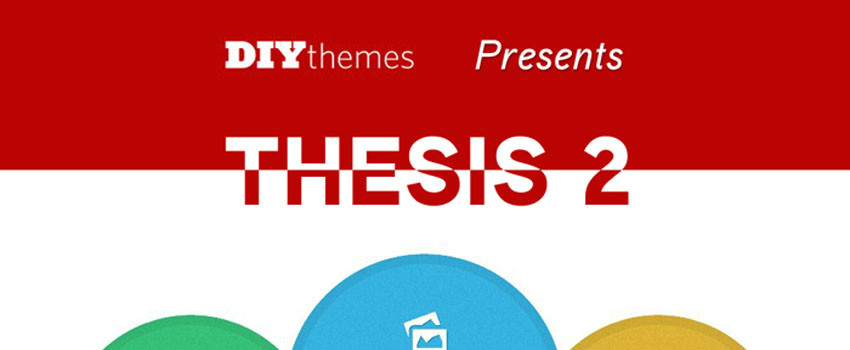23 Shares Let’s be reasonable here. When it comes to WordPress frameworks there are only two real competitors: Thesis from DIY Themes and Genesis from StudioPress. Headway has made some nice strides and does offer a beginner-friendly interface, but its bulky and doesn’t match up to the efficiency or extensibility of Thesis or Genesis. There are several other notable frameworks. I’d love to see them do some catching up and really drive the market to be better, but they aren’t there yet. What This Is And What This Is Not First, in the interest of full disclosure, I am a full-time web designer/developer who works exclusively with WordPress and almost exclusively with Thesis.
I have worked a fair amount with Genesis, and have, for the most part, enjoyed the experience. I’m attempting to be as unbiased as possible, but I say this so you know where I’m coming from.
Thesis Framework Wordpress Free Trial
Second, I’m not going to tell you that one framework is unequivocally better than the other. I’m striving to provide an honest assessment of the strengths and weaknesses of each framework, and to give you the tools you need to make an informed decision. postimage Playing for Keeps Both Thesis and Genesis, as I’m about to explain, are great pieces of software backed by solid developers that I have a great deal of respect for.
With that said, its important that you make a decision and stick to it. Changing frameworks on an established site is a big no-no. Even if your site is visually and functionally similar, your HTML will be completely different and you may be penalized by Google. Its not the end of the world if you switch, but its a road I don’t recommend traveling. The Criteria I’m not going to give you a grade for each criteria or anything like that, but this type of thing has to have some structure, or I’ll end up writing a book. Thus, I’ve laid out a set of criteria that I think are crucial in determining which framework is best for you. This is by no means exhaustive, but it should get you started.

In no particular order:. Efficiency Both frameworks are obscenely fast! When used in combination with, and a decent server setup both frameworks can be served up in under 1 second even when heavily customized. In a technical sense, the frameworks load almost 100% differently. Genesis more or less uses the traditional WordPress method of using different templates for the header, sidebar, footer, index, etc.
Thesis almost completely ignores this structure. Regardless of how important you may think it is to use native WordPress functionality, there’s no questioning the fact that both methods are producing extraordinarily fast websites. At the end of the day.
That’s what matters. YSlow Analysis To get an idea of just how fast each framework is, let’s take a look. YSlow is an add-on for Mozilla Firefox that tells you exactly why your page is loading slowly, and gives you a rating from 0-100 for your website’s page load speed.

I’m running a fresh WordPress installation, and fresh installations of Thesis and Genesis. Also, I’m using the latest YSlow ruleset which is version 2.0, and of course, that means I’m running the latest version of Firefox as well. Genesis Out of the box, Genesis achieves a score of 82 out of 100 on YSlow. Its score deductions come mostly because my setup is not using a content delivery network or gzip compression. The deductions that can be controlled by the theme come from the 3 javascripts. The total page download for the Genesis homepage under this setup is 111.9KB.
Thesis Framework Wordpress Free Download
4.4KB of this is the HTML document, 21.1KB can be attributed to the style sheet, 0.3KB can be attributed to 2 CSS background images, and 76.2KB is composed of 3 javascripts that take care of the fancy drop down menus. This means the entire page requires 7 HTTP requests.
For the record, HTTP requests are usually the main culprit when it comes to high page load times. Thesis Thesis achieves a score of 82 out of 100 on YSlow. It has the same score deductions as Genesis accept that it receives larger deductions because it has 3 style sheets instead of one. Thesis also loads 1 random inline image that is between 10KB and 20KB by default, and, like Genesis, Thesis has a total of 7 HTTP requests.
The total page download for the Thesis homepage under this setup is 49.0-59.0KB. 4.9KB is from the HTML document, 33.2KB from 3 style sheets, 1.0KB from 2 CSS background images, and 10-20KB from 1 inline image. If you turn off the multimedia box image, the total download drops under 40KB, and you’re only looking at 6 HTTP requests.

That’s still pretty darn slim, but it could be better. Thesis developer Chris Pearson has that he plans to eventually cut down on the number of style sheets, and that would certainly help. For now, you can use to minify the stylesheets and combine them into one. That cuts out two HTTP requests right there. For the record, you can do the same for the Genesis fancy drop down JS and cut out two HTTP requests there as well. Where the Rubber Meets the Road So, all of these ratings and statistics give us a decent barometer for efficiency, but ultimately what matters is the actual page load time. YSlow also records the amount of time a page takes to load.